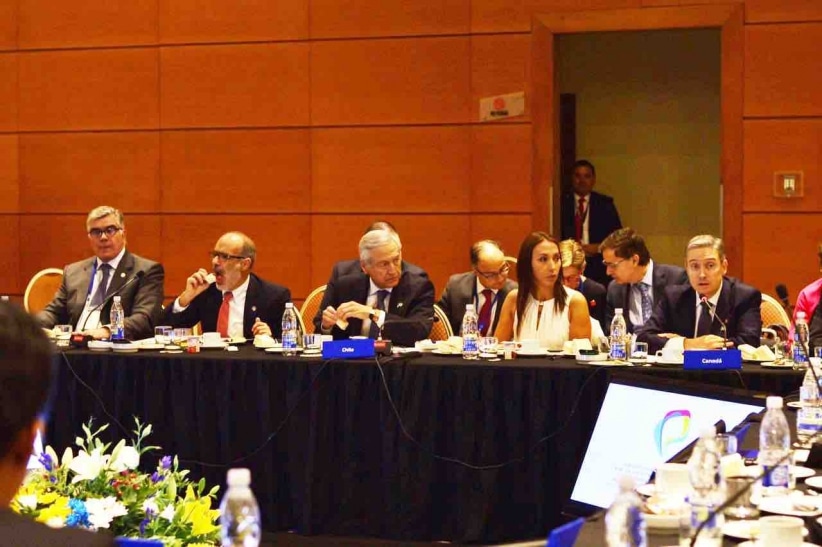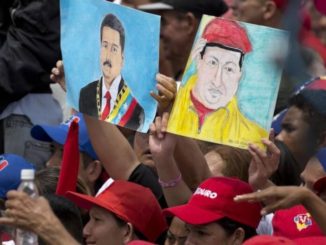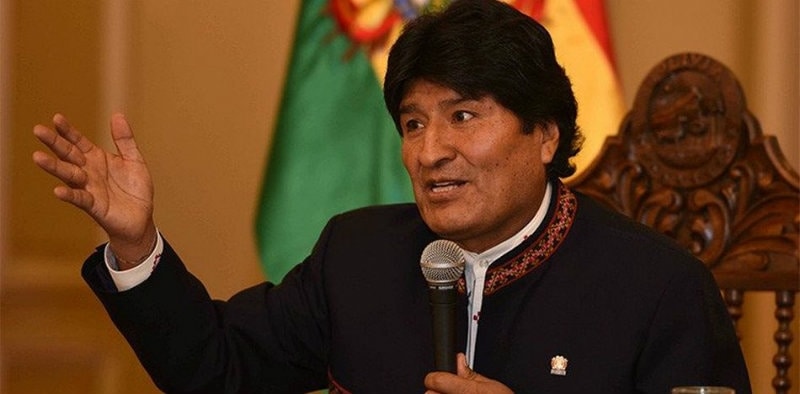
By Mohsin Abbas /The Santiago Times Staff
VIÑA DEL MAR, Chile — Representatives from Australia, Brunei Darussalam, Canada, Chile, Japan, Mexico, New Zealand, Malaysia, Peru, and Singapore and Vietnam yesterday met in the Chilean coastal city of Viña Del Mar to discuss the Trans-Pacific Partnership (TPP) on the margins of the high level dialogue on Integration Initiatives for the Asia Pacific.
Apparently the media was not allowed to ask any question during Wednesday’s scheduled press conference with Foreign Affairs Ministers and Deputy Trade Ministers of the Asia-Pacific Region.
Initially, the media was scheduled to attend an event later this afternoon (4:00 p.m.) to hear a statement from summit members. But surprisingly an official statement was sent out to media via email around 11 a.m.
According to the statement, the participants reiterated their firm commitment to collaborate in keeping markets open and to the free flow of goods, services and investment, advancing regional economic integration, and strengthening the rules-based international trading system, noting their concern with protectionism in many parts of the world.
They recalled the balanced outcome and the strategic and economic significance of the TPP highlighting its principles and high standards as a key driver for regional economic integration and promoter of economic growth, competition, innovation and productivity, with the potential of generating jobs and lowering costs for consumers.
The high level representatives exchanged views on their respective domestic processes regarding TPP and canvassed views on a way forward that would advance economic integration in the Asia Pacific. Senior Trade Officials will meet and consult in preparation for the Ministers to meet again on the margins of the APEC meeting of Ministers Responsible for Trade, on May 20-21, 2017.
Trans-Pacific Partnership
The Trans-Pacific Partnership (TPP), or Trans Pacific Partnership Agreement (TPPA), is a trade agreement among twelve of the Pacific Rim countries – notably not including China. The finalized proposal was signed on 4 February 2016 in Auckland, New Zealand, concluding seven years of negotiations.
However, US President Donald Trump pulled out of the TPP trade deal on his first day in the White House as a key part of his election campaign.
The twelve countries that border the Pacific Ocean and signed up to the TPP, represent roughly 40% of the world’s economic output.
The pact aimed to deepen economic ties between these nations, slashing tariffs and fostering trade to boost growth. Members had also hoped to foster a closer relationship on economic policies and regulation.
The agreement was designed so that it could eventually create a new single market, something like that of the EU. But all 12 nations needed to ratify it, before it could come into effect.
Other member states are: Japan – the only country to have already ratified the pact – Malaysia, Vietnam, Singapore, Brunei, Australia, New Zealand, Canada, Mexico, Chile and Peru.



